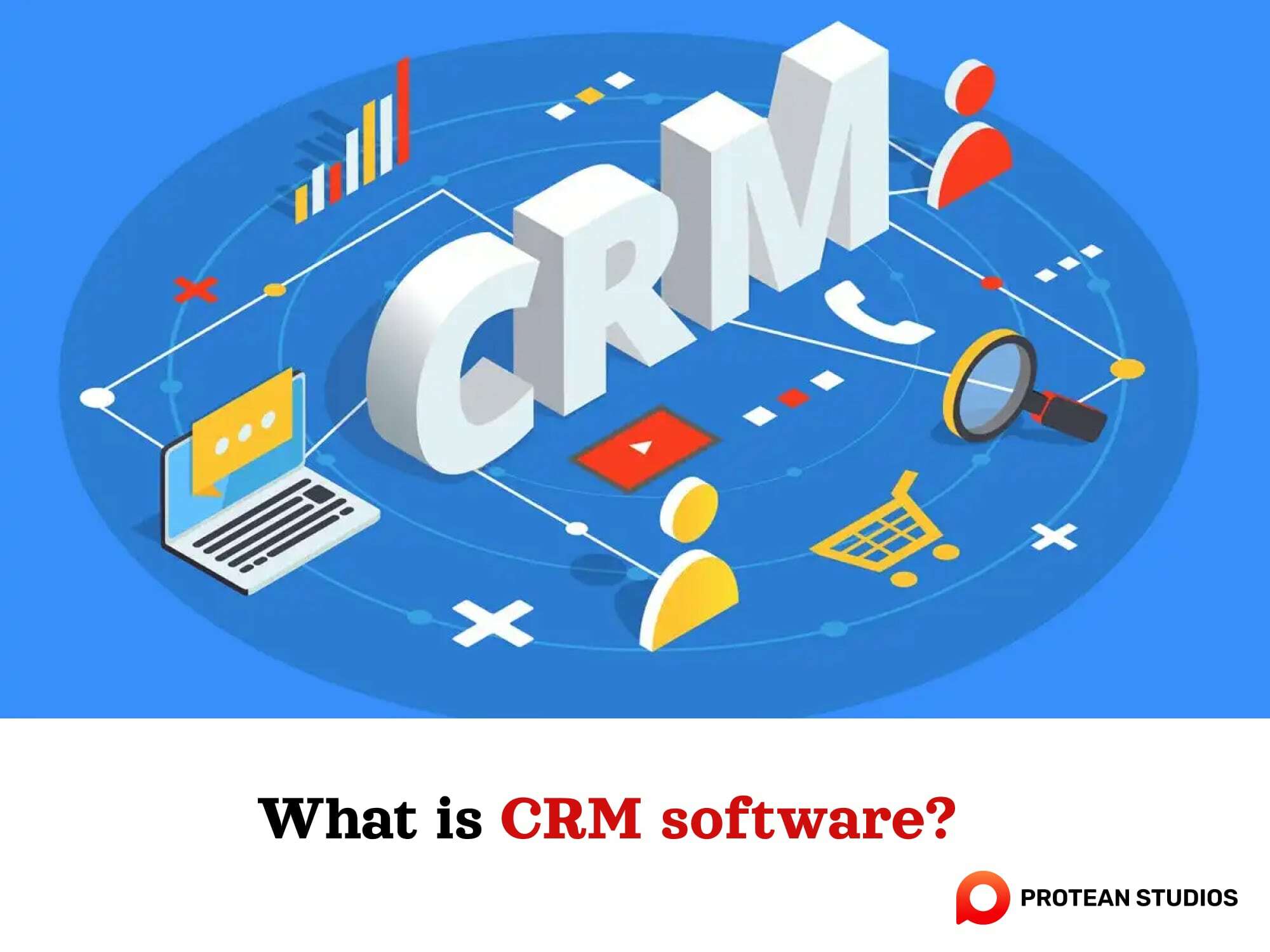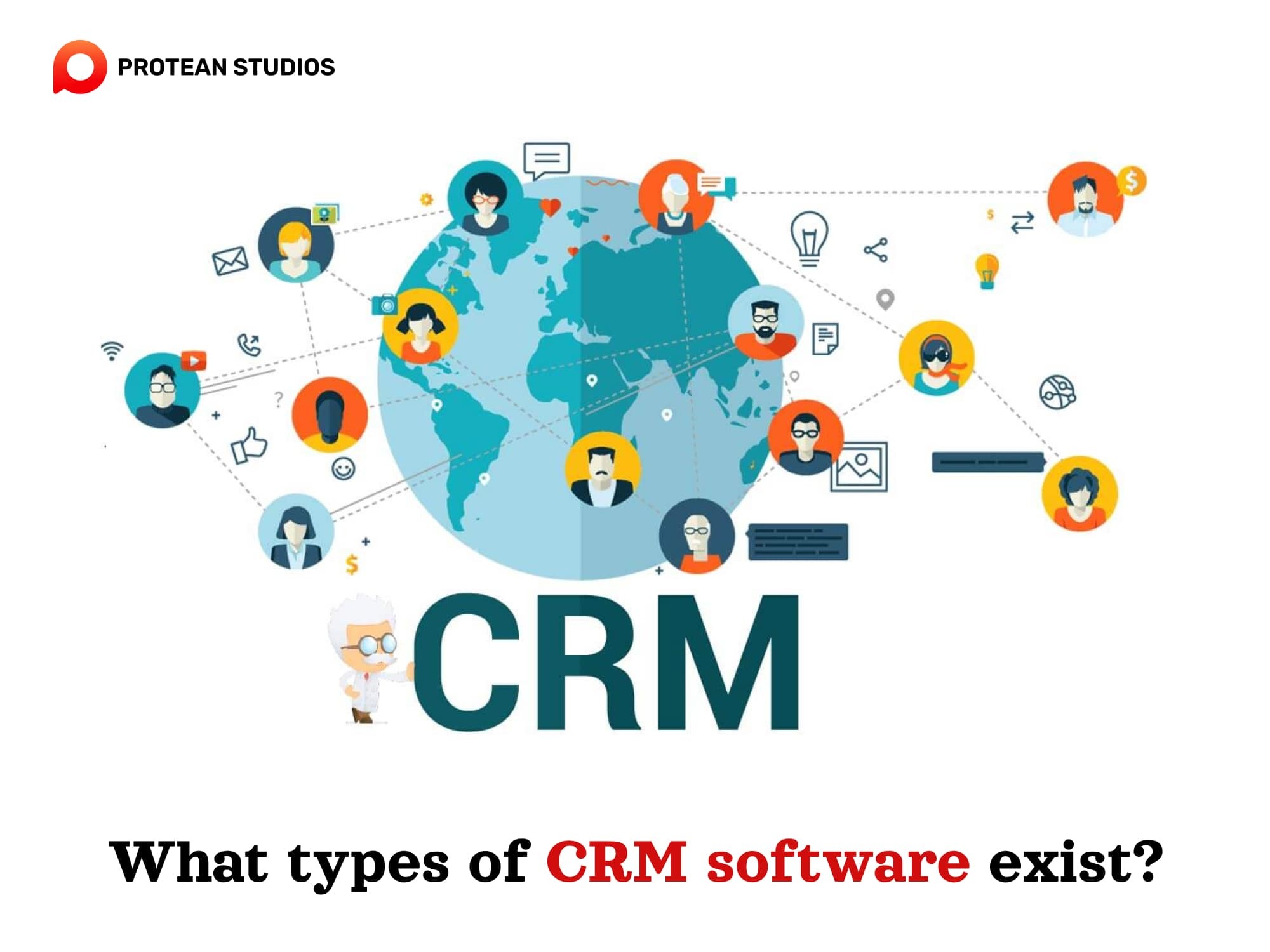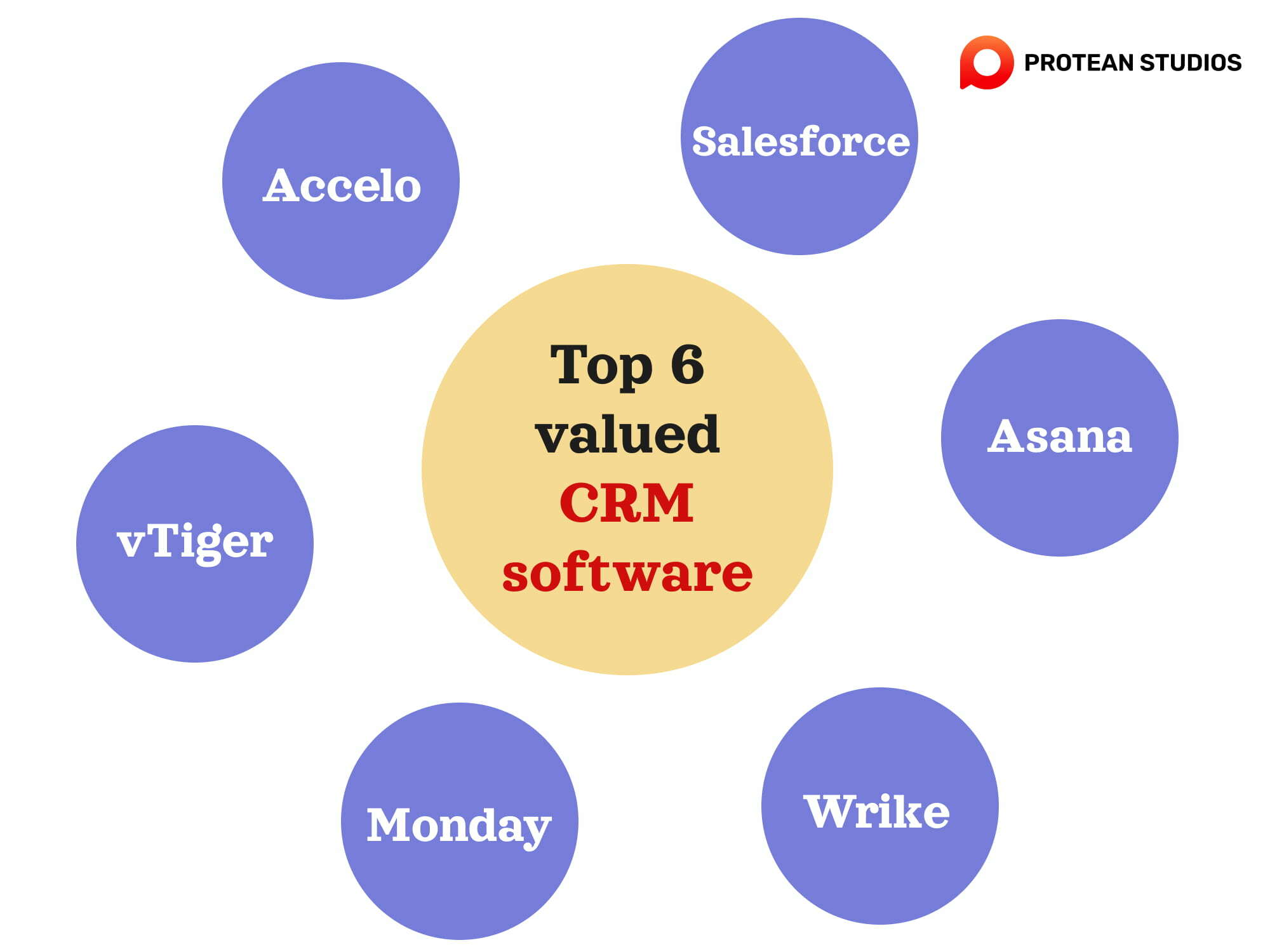In the recent digital era, customer relationship management (CRM) software has emerged as a pivotal element. It reshapes the way organizations approach and execute their projects. Thus, in the article, we will delve into the relationship between CRM software and project management, explaining why it drives efficiency, collaboration, and client satisfaction.
I. What is CRM software?
CRM software is a tool that helps companies manage their interactions with current and potential customers. It helps businesses improve customer satisfaction, loyalty, retention, and revenue by streamlining communication and automating tasks. Besides, it provides insights into customer behavior and preferences.

Project management software provides users with proven methods and procedures to get their goals. Instead of relying on guesswork or trial and error, this software guides users through the best practices for planning, executing, and monitoring their projects.
II. The importance of CRM software in project management
CRM software enables project managers to track and manage interactions with current and potential customers, as well as check the progress and performance of the project. CRM software can also provide valuable insights into customer needs, preferences, feedback, and satisfaction, which can help improve the quality and delivery of project outcomes.
It is becoming more essential as it dominates and expands the enterprise application software market. According to Statistic, the global expenditure on CRM will reach USD $131.90 billion in 2028. A CRM system can provide businesses with a comprehensive view of your customers.
Managers can access everything in one place. This software's customizable dashboard can show a customer’s previous interactions, the status of their orders, any pending customer service issues, and more.
III. What types of CRM software exist?
There are three types of CRM tools, with project management functionality playing a role across each category.
1. Operational
This type focuses on automating and streamlining business processes. It involves customer contact, such as marketing, sales, and service. Operational CRM software helps businesses improve their efficiency, productivity, and customer satisfaction. Project managers can reduce manual tasks, enhance communication, and provide a unified view of customer data.

2. Analytical
An analytical CRM system helps businesses improve their customer service by using data analysis. It collects customer data, guides business processes, and measures KPIs to enhance the CRM's performance. CRM and project management features will assist teams in finding the best sources of data and creating tasks to track source performance. And then producing reports to help users optimize their efforts.
3. Collaborative
Collaborative CRM software supports businesses in sharing customer information and knowledge across the organization, as well as with external partners like suppliers, distributors, and vendors. To achieve the common target of satisfying a customer's demand, every department can improve its contribution. Features like comments and file attachments alongside tasks in CRM enable better cooperation among cross-functional teams working on client projects.
IV. Top 6 valued CRM software
There are many CRM software options available on the market, but some stand out for their value, features, and ease of use. Below are some CRM tools that businesses can use.
1. Salesforce
Salesforce stands out as a cloud-based CRM platform designed for businesses of varying sizes. This integrated platform connects sales, service, marketing, e-commerce, etc. It offers users a unified source of information. Renowned for its scalability and flexibility, Salesforce ensures swift implementation, catering to companies across diverse industries.
2. Asana
Asana functions as a work management platform that incorporates project management features. Anasa is CRM software that allows users to create and track tasks, projects, goals, and milestones related to customer interactions. This software integrates with many popular tools, such as Gmail, Slack, Zoom, and Salesforce. It also takes pride in its simplicity, flexibility, and modern interface.
3. Wrike
Wrike is another cloud-based project management and collaboration tool that can also serve as CRM software. It enables users to plan, execute, and check their projects and workflows related to customer relationships.
Wrike offers advanced features such as Gantt charts, dashboards, reports, time tracking, and automation. It also integrates with over 400 applications, such as Google Workspace, Microsoft Office 365, Adobe Creative Cloud, etc. This is ideal software for large and complex projects that need high-level visibility and control.
4. Monday Sales CRM
Monday.com is a visual platform that enables teams to collaborate and manage work across the organization. It is easy to set up and offers a CRM with features to capture and manage leads, contacts, pipelines, customer projects, marketing campaigns, and task tracking.

This software has a customizable interface, automatic workflows, tailored templates, and powerful integrations. The goal is to help teams create an application that suits their specific needs. Its CRM project management solution aligns project, marketing, sales, and support teams. It also provides visibility that shows the project status in real time.
5. vTiger
vTiger is a CRM platform that helps SMBs grow their businesses and improve customer relationships. It offers flexible and affordable online plans as well as open-source versions that can be installed on-premise. This software has a fast interface that requires minimal training.
vTiger also delivers a complete view of the customer journey and actionable insights with its built-in AI features. The software can connect with many popular third-party apps.
Read more: Top 3 Outsourced Project Management Methodologies
6. Accelo
Accelo is a cloud-based CRM software. It is active for service-based businesses such as agencies, consultants, lawyers, accountants, and engineers. It helps users automate their client operations, from prospecting to invoicing. This software provides features such as project management, time tracking, billing, reporting, and scheduling.
One of Accelo’s benefits is the provision of a shared client and contact database, which facilitates seamless collaboration and communication within teams. Besides, the platform ensures mobile access, so users can stay connected and productive on the go.
Yet, the setup process for Asana can be time-consuming, requiring a significant investment in the initial configuration. Another limitation is the absence of automated prioritization for task assignments, which may impact efficiency in task management.
V. Summarizing CRM software
In conclusion, CRM software is a valuable tool for businesses that want to improve their customer relationships, increase sales, and optimize their workflows. It accommodates the specific needs and goals of each business. Then, enhance functionality and efficiency by integrating with other applications and systems. By using this software, businesses can gain a competitive edge in the market and achieve higher levels of customer loyalty.




